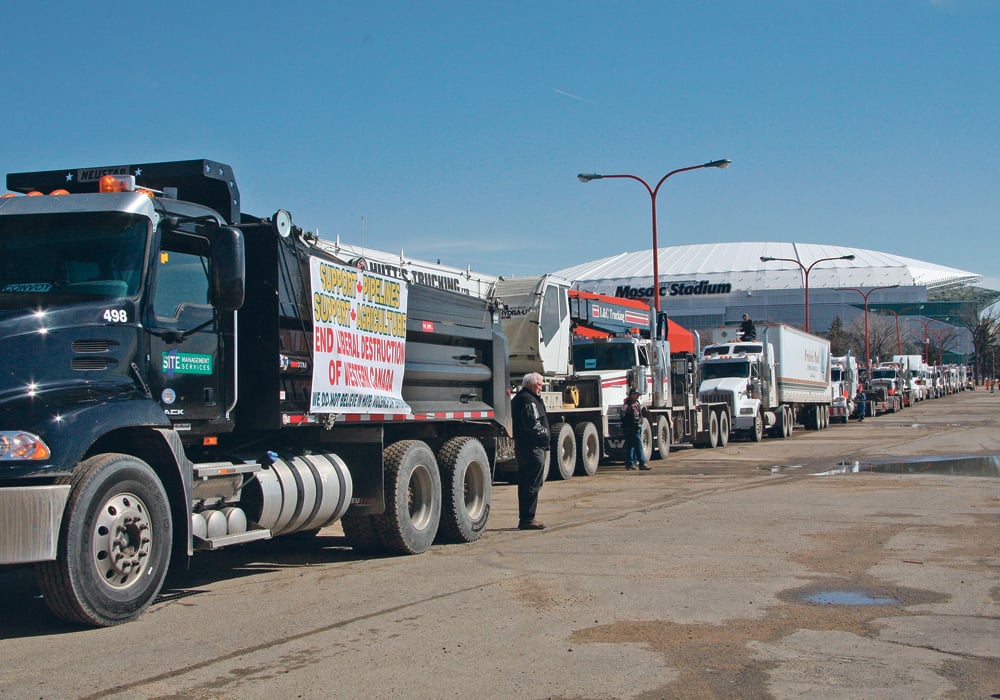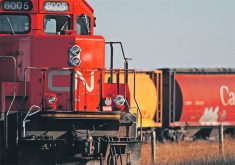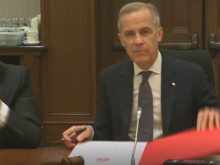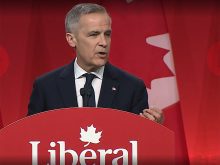Truck after truck after truck drove into Regina April 4 heading to a rally to protest the recently imposed federal carbon tax.
The convoy of all sizes and types of trucks from several industries gathered at various locations in southern Saskatchewan before converging at a single site to enter the city.
Organizers estimated as many as 800 vehicles gathered at Evraz Place and about 1,500 people packed meeting halls to listen to opponents slam the tax.
Byron Baird works for an Estevan company that services the coal industry. This was the second convoy for him.
Read Also

Why feds imposed EV tariffs
Moe and Kinew have a fight on their hands when it comes to eliminating the EV tariff. Canada has to worry about pissing off the U.S. and Mexico and hundreds of thousands of auto workers.
“Our company was actually involved with the Ottawa convoy as well,” he said.
Baird said convoys boost morale and he believes they make a difference.
“There is power in numbers,” he said.
Rally organizer Jason LeBlanc, an Estevan auctioneer and farmer, said the tax will kill Saskatchewan’s economy and he questioned how it will benefit Canadians.
“We want answers,” he said.
He blamed the Liberal government for many of agriculture’s current challenges, saying that since Prime Minister Justin Trudeau came to power there has been one problem after another for farmers.
The rally had a distinct campaign tone as federal Conservative MPs and Saskatchewn Premier Scott Moe took the Liberal government to task.
Souris-Moose Mountain MP Robert Kitchen said the farmers in attendance should be at home preparing for seeding. He said some question what a rally accomplishes and how the participants could afford to attend.
“How can you afford not to do this?” he said. “We do not, we will not, accept this carbon tax.”
Dan Cugnet, a farmer and energy company owner from Weyburn who acted as master of ceremonies, told the crowd the rally was to let the Liberals in Ottawa know their days are numbered.
“Canadians are ready for a change and October cannot come soon enough,” he said.
Moe said the federal tax doesn’t recognize that sectors like agriculture have already adopted practices and technologies that curb greenhouse gas emissions.
“We continue in this nation to have the wrong conversation,” he said. “We need to shift our focus towards innovation and technology and what research and science can do for us.”
He told reporters that Saskatchewan has exported zero-till and carbon capture and storage technology around the world and those are the kinds of innovations that work.
Moe said the convoy was an appropriate way to protest the tax, despite the fact that a significant amount of carbon tax was paid on the fuel used by the participating vehicles, because it showed the investment that farmers, energy workers and manufacturers have made in more efficient, low-emission engines.
“This is what we do and it needs to be acknowledged,” he said. “This is a fact of the world that we live in.
“As we continually transition to a lower carbon economy, we most certainly are doing that here in the province with the investment that is being made in many cases by the people that are here today.”
Moe said Saskatchewan will intervene in the court challenge of the tax that Manitoba Premier Brian Pallister launched last week.
He said he has no indication when the Saskatchewan Court of Appeal will rule on the court challenge it heard in February.
“We see now four provinces that are not on board with the federal government’s carbon tax. We very soon may see five provinces representing 60 percent of the population in our nation,” he said, referring to a potential change of government after Alberta’s upcoming election.
















